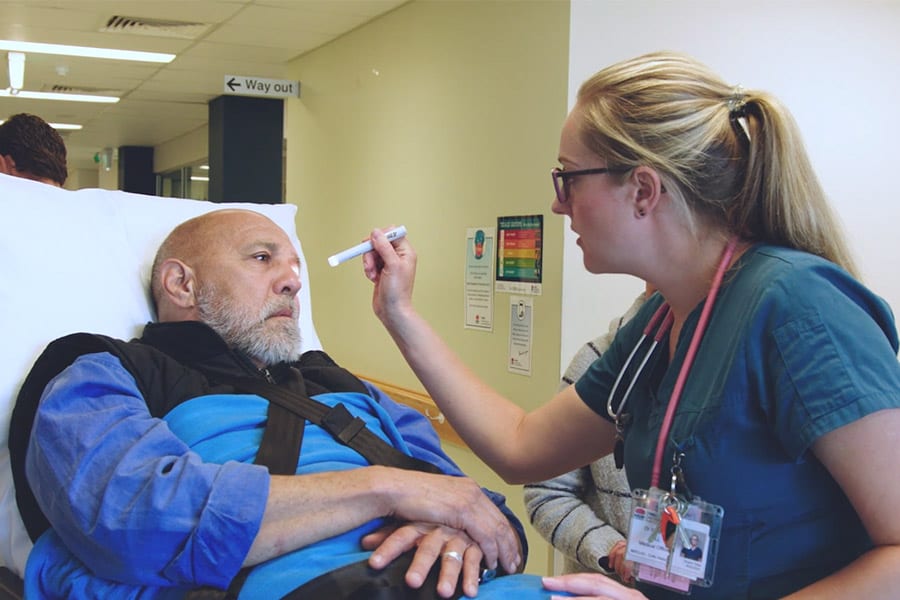NSW Health’s new Telestroke Service commenced clinical operations in March this year, providing regional and rural stroke patients with immediate, life-saving diagnosis and treatment from the state’s leading clinicians.
The service builds on a pilot using telehealth technology to deliver time-critical 24/7 access to specialist clinical advice for the management and early treatment of stroke patients at regional and rural hospitals.
Port Macquarie Base Hospital and Coffs Harbour Health Campus were central to the successful pilot and the first to transition to the state wide service, enabling these facilities to continue to offer a hyper-acute stroke service for patients.
Hyper-acute stroke management is time dependent, aiming to reperfuse at-risk brain cells and manage symptoms as quickly as possible. People who present with sudden onset of focal neurological symptoms and are suspected of having a stroke should be urgently transferred to Coffs Harbour Health Campus or Port Macquarie Base Hospital by calling 000.
The Telestroke Service uses Skype for Business technology to enable access to expert advice on the best treatment options, including stroke unit care, thrombolysis or clot retrieval. These treatments offer people with stroke the best chance of recovery. Some management options require the patient to be transferred to John Hunter Hospital for treatment, but most are transferred back to their local hospital within a few days.
In the last four months, 140 patients across Coffs Harbour Health Campus and Port Macquarie Base Hospital were assessed by the Telestroke Service. Of these patients, 104 were confirmed strokes and 20 of these were treated with reperfusion therapy.
Unfortunately, there has been a growing trend of patients delaying presentation to hospital since COVID-19 began in Australia. As a result, some patients have missed out on treatment, potentially affecting their stroke recovery.
The Mid North Coast Local Health District is asking for your assistance in advising patients and family members to treat stroke symptoms as a medical emergency and call 000.
The F.A.S.T. test is an easy way to spot the signs of stroke.
F.A.S.T. stands for:
- Face: Check the person’s face. Has their mouth drooped?
- Arms: Can the person lift both arms?
- Speech: Is the person’s speech slurred? Do they understand you?
- Time: Is critical. If you see any of these signs call 000 straight away.
For more information, contact the Telestroke Implementation Officers at Port Macquarie Base Hospital or Coffs Harbour Health Campus:
Port Macquarie
Kim Parrey
0409 269 687
Coffs Harbour
Amanda Buzio
0427 603 676
Check out some footage of the Telestroke Service in action.



